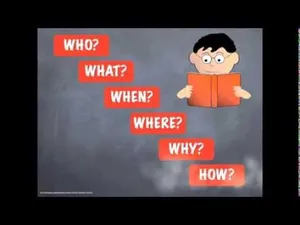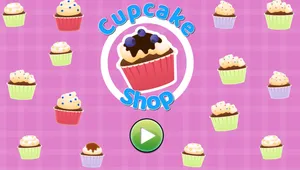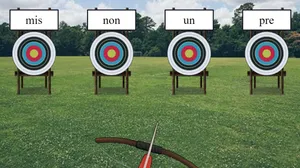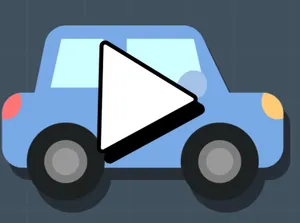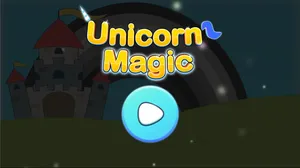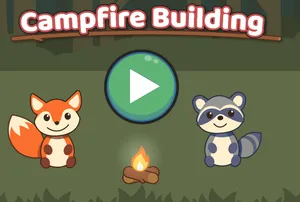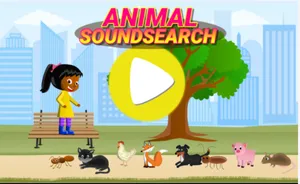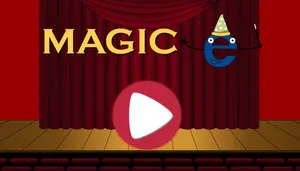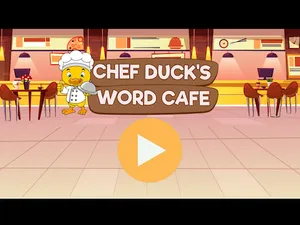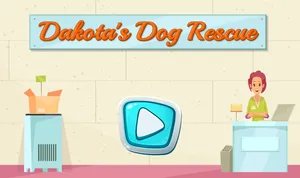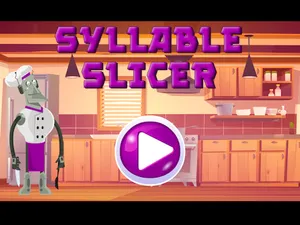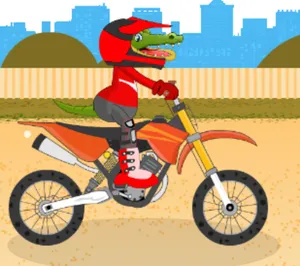Adventures with Rabbit and Cat
Questions About Stories
K.5.G and 4 more
Separating Sounds
Letters Make Words
K.2.B and 3 more
Unicorn Magic Synonyms
What are Synonyms?
1.3.D and 2 more
Campfire Building Consonant Digraphs
"Sh" and "Ch"
1.2.B and 2 more
Ice Cream Cone Zone
Words That Rhyme
K.2.A and 2 more
Animal Sound Search
Sounds You Hear in Words
1.2.A and 1 more
Magic e
Silent 'e'
1.2.B and 1 more
Chef Duck's Word Cafe
Vowel Teams
1.2.B and 1 more
Dakota's Dog Rescue 1st Grade
Context Clues
1.7.F
Magical Syllables 1st Grade
Identify Syllables
1.2.C
Syllable Slicer
Identify Syllables
2.2.B
Motocross Sight Words 1st Grade
Sight Words
1.2.C
Quincy's Sight Word Dig 1st Grade
Sight Words
1.2.C
Anisha is Bored
Important Characters
1.9.A
Reading Activities and Teaching Resources for 1st Grade
Forget those nervous, new-to-school vibes. First graders are seasoned vets who know a thing or two about how the classroom works. Reading groups are where the magic happens.
First grade is an exciting time in a young reader's journey to literacy. Many students will be transitioning from guided to independent reading, learning how to read familiar stories with understanding and purpose. Print concepts and the ability to decode more complex words will also be developed.
For a more comprehensive look at eSpark's standards-aligned first grade reading teaching resources, check out the breakdown of covered domains and the skills students will be working on here:
Some of the skills students will master in eSpark include:
Reading Foundational Skills
- Understand print concepts such as recognizing the distinguishing features of a sentence (first word, capitalization, ending punctuation).
- Distinguish long from short vowels.
- Produce single-syllable words by blending sounds.
- Isolate and pronounce initial, middle, and final phonemes in spoken single-syllable words.
- Segment spoken single-syllable words into individual phonemes.
- Know the spelling-sound correspondences for common consonant digraphs.
- Decode regularly spelled one-syllable words.
- Know final -e and common vowel team conventions.
- Determine the number of syllables in a printed word.
- Decode simple two-syllable words.
- Read words with inflectional endings and affixes.
- Recognize and read 1st grade sight words.
- Read 1st grade text with purpose and understanding.
- Meet 1st grade phonics, phonemic awareness, and phonological awareness objectives.
Reading Literature
- Ask and answer questions about key details.
- Retell stories and demonstrate understanding of the central message or lesson.
- Describe characters, settings, and major events
- Identify feelings words.
- Explain differences between fiction and non-fiction texts.
- Identify the narrator and point of view (who is telling the story?).
- Use illustrations and textual details to describe characters, setting, or events.
- Compare and contrast the adventures and experiences of characters in stories.
- With prompting and support, read 1st grade prose and poetry.
Language
- Determine or clarify the meaning of unknown and multiple-meaning words and phrases.
- Use sentence-level context as a clue to meaning.
- Use frequently occurring affixes as a clue to meaning.
- Identify frequently occurring root words and their inflectional forms.
- Understand word relationships and nuances in word meanings.
- Sort words into categories.
- Define words by category and one or more key attributes.
- Identify real-life connections between words and their use.
- Distinguish shades of meaning among verbs and adjectives.
Reading Informational
- Ask and answer questions about key details.
- Identify the main topic and retell key details.
- Describe the connection between two individuals, events, ideas, or pieces of information.
- Ask and answer questions to clarify the meaning of unknown words.
- Know and use various text features (headings, tables of contents, glossaries, menus, icons, etc...) to locate key facts or information.
- Distinguish between information provided by pictures and information provided by words.
- Use illustrations and details to describe key ideas.
- Identify author reasoning.
- Compare and contrast two texts on the same topic
- With prompting and support, read 1st grade informational texts.
eSpark is truly unique in the world of online learning. Our holistic, student-centered approach blends the proven benefits of play-based learning with systematic, explicit, and direct instruction. It’s proof that learning can be fun, personalized, and effective, all at once!
eSpark meets the criteria for evidence-based interventions under ESSA guidelines, and has been proven in multiple studies to improve student performance in math and reading.
When you sign up for an eSpark account, your students experience these activities via adaptive, differentiated independent pathways and teacher-driven small group assignments. Teachers also have access to detailed usage and progress reports with valuable insights into standards mastery, student growth trends, and intervention opportunities.
With the addition of the game-changing Choice Texts for the 2023-2024 school year, eSpark has cemented its status as the most loved supplemental instruction option for students and teachers alike. Claim your free account today and see the difference for yourself!
